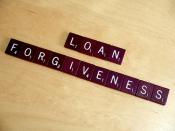Fair housing has become an important and familiar topic amongst the home buying population. In fact, housing fraud has become such a major issue these days that events such as county fairs have even held poster contests to involve children in helping support fair housing opportunities (HUD Newsroom). Loan fraud continues to affect home buyers and de-stabilize housing communities on a yearly basis. In a broad sense, the term predatory lending refers to the act of persuading borrowers to agree to unfair and abusive loan terms. Specifically, "predatory lending refers to secured loans such as home loans which are made by the lender with the intention that the borrower will not repay the loan, allowing the lender to seize the home and sell it for a profit" (wikipedia, HUD). Predatory lending follows strategic lending processes with an unjust intent to gain profit, which leaves citizens and communities in damaging situations.
In communities across the country, predatory lenders, appraisers, and mortgage brokers seek to trap uninformed potential homebuyers. When a lender or investor is dealing with a client ignorant to the borrowing process, they have the advantage to manipulate or even flat out lie to borrowers. The Department of Housing and Urban Development (HUD) lists some of the fraudulent tactics predatory lenders use in the lending process. Homes that people buy are set at significantly higher costs than other homes in the neighborhood, but are not higher in value. Lenders tell borrowers that it is their only chance of getting a loan, owning a home, or that they can only get a good deal on a home improvement if they finance it with a particular lender. Borrowers are asked to sign sales contracts or loan documents that are blank or that contain false information. People are even told that refinancing -...


